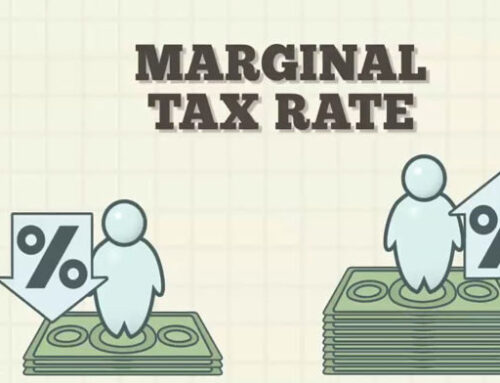Unraveling the Impact of Life Milestones on Your Taxes and Benefits
Life’s major milestones, such as marriage, the arrival of a baby, or retirement, bring about significant changes in our lives. However, one aspect we often overlook is how these life changes can affect our tax situation. For instance, having a child makes you eligible for the Canada Child Benefit Recalculations, while getting married alters the way you file your taxes and modifies the calculation of certain benefits, shifting from individual to spousal or family calculations.
Often, it’s only when we observe the absence or alteration of these payments in our bank accounts that we realize the extent of the changes. Hence, we are here to provide answers to the questions you may have about your benefits, shedding light on the intricacies of their transformations.

Navigating Benefit Recalculations: Understanding Payment Changes
Payment periods for benefits commence on July 1 and conclude on June 30 of the subsequent year. It can come as a surprise when your payments undergo a mid-summer transition. This occurs because the benefit period aligns with the time frame from July to June of the following year. Even if you anticipate changes based on your tax return or Notice of Assessment, you will witness the actual impact beginning in July.
Understanding Benefit Changes: Why and How They Happen
The adjustment of benefits and amounts can occur due to various reasons, primarily tied to changes in your personal circumstances. After filing your tax return for the previous year, the Canada Revenue Agency (CRA) evaluates your eligibility for the upcoming benefit period. It is crucial to file your taxes annually to ensure a seamless continuation of the benefits and credits you are entitled to, as most are linked to your current tax return.
When your situation undergoes changes such as a job switch, income alteration, marital status modification, the birth or aging out of children, or changes in residency or citizenship, your benefit amounts are likely to be affected. Let’s explore some of the key reasons behind these changes:
Canada Child Benefit:
If you have another child, your benefit amount may increase. Conversely, as a child ages out of the program, your benefit may decrease. Additionally, if the eligibility of a child for the disability tax credit changes, it will impact the benefit amount. If you recently married or are now considered common-law, your benefit amounts will also change. In cases of divorce or separation, where childcare responsibilities are shared equally, you and your ex-partner will each receive half of the benefit.
It is essential to note that failing to file your taxes on time each year can lead to a cessation of benefit payments. Therefore, timely filing is crucial to avoiding any disruptions.
Furthermore, keep in mind that there are provincial child benefits that you should be aware of.
Additionally, it is important to promptly inform the CRA about changes in your marital status and the number of children under your care, as adjustments to your benefits will be made in the following month, rather than the next benefit period, as is the case with some other benefits.
Understanding Benefit Payments and Schedules
GST/HST Credits:
The GST/HST credit is calculated based on all eligible individuals in your household, including children. As you have more children, your credit amount will increase. However, when a child turns 19, the amount will decrease, and they will receive the credit directly when they file their tax return, assuming they meet the eligibility criteria. It’s important to note that the GST/HST credit is designed for low- and moderate-income individuals and families. Once your net income surpasses a certain threshold, you will no longer receive this credit. The CRA provides a helpful calculator to determine your eligibility for this benefit. Additionally, keep an eye out for any changes to your eligibility for provincial sales tax credits for low-income individuals and seniors.
Payment Schedule: Knowing when to expect your benefit recalculations payments is crucial once you determine your eligibility. Here’s a convenient list of the payment schedule to help you stay informed about when the funds will be disbursed for the Canada Child Benefit Recalculations in 2024:
- January 20
- February 18
- March 18
- April 20
- May 20
- June 20
- July 20
- August 19
- September 20
- October 20
- November 18
- December 13

Benefit Payment Schedule for 2023:
GST/HST Credit:
- January 5
- April 5
- July 5 (If your total GST/HST credit amount is $50 or less for the year, you’ll receive the entire payment in July instead of quarterly.)
- October 5
Climate Action Incentive Payment (for Alberta, Saskatchewan, Manitoba, and Ontario residents only):
- July 15 (Includes retroactive amounts for April)
- October 14
Starting in future years, this credit will be paid out four times annually, specifically in January and April.
If you expect to receive benefit payments but have not received them according to the schedule, please wait for 5-10 business days and then contact the CRA for assistance.
Also Read: Are Gifts To Customers And Business Associates Deductible Expenses?
Life is filled with unexpected twists and turns, and your financial situation can change over time. When this happens, it’s important to understand how these changes can impact your benefits, such as Social Security or government assistance programs. In this blog, we will delve into the concept of benefit recalculations and provide answers to common questions to help you navigate this aspect of your financial well-being.
1. What Is a Benefit Recalculation?
A benefit recalculation is the process of reevaluating and adjusting your eligibility and payment amount for government benefits or assistance programs based on specific life events or changes in your financial circumstances. These events can include changes in income, marital status, disability status, or age.
2. Why Do Benefit Recalculations Occur?
Benefit recalculations occur to ensure that the assistance or benefits you receive accurately reflect your current financial situation and needs. These recalculations help maintain the fairness and sustainability of government programs while accommodating changes in individuals’ lives.
3. When Do Benefit Recalculations Happen?
Benefit recalculations can occur at various times, depending on the specific program or benefit. Some common triggers for recalculations include:
- Annually: Some government assistance programs require annual income verification and recalculation.
- Change in Marital Status: Marriage, divorce, or the death of a spouse can trigger recalculations for certain benefits, such as survivor benefits or spousal support.
- Change in Income: If your income significantly increases or decreases, it can affect your eligibility or payment amount for programs like Social Security or Medicaid.
- Change in Disability Status: For disability-related benefits, any change in your disability status may lead to a recalculation.

4. How Does a Benefit Recalculation Work?
The process of a benefit recalculation varies depending on the program and the specific circumstances. Typically, it involves providing updated information about your financial or personal situation to the relevant government agency. This may include submitting documentation, such as tax returns, pay stubs, or medical records, to verify changes.
5. Can Benefit Recalculations Result in a Reduction of Benefits?
Yes, benefit recalculations can result in a reduction of benefits if your updated information indicates that you no longer meet the eligibility criteria or if your financial situation has improved. It’s important to be prepared for potential reductions and understand how they may affect your financial planning.
6. Can Benefit Recalculations Result in an Increase in Benefits?
On the flip side, benefit recalculations can lead to an increase in benefits if your updated information shows that you now qualify for additional support or if your circumstances have changed in a way that warrants higher payments.
7. How Can I Prepare for a Benefit Recalculation?
To prepare for a benefit recalculation, keep detailed records of any changes in your life or finances that may affect your eligibility. Stay informed about the specific requirements and documentation needed for the programs you are enrolled in, and be proactive in providing accurate information to the relevant agencies.
Conclusion
Benefit recalculations are a necessary part of government assistance programs to ensure that individuals receive the support they need based on their current circumstances. While recalculations can result in changes to your benefits, it’s important to stay informed, prepare for potential adjustments, and understand how they may impact your financial situation. If you have questions or concerns about benefit recalculations, consider seeking advice from financial professionals or contacting the relevant government agencies for guidance.
Recent Posts
FAQ
When are benefit payments made?
Benefit payments are made according to a specific schedule. Here is a convenient list of payment dates to help you stay informed about when you can expect to receive your benefits.



